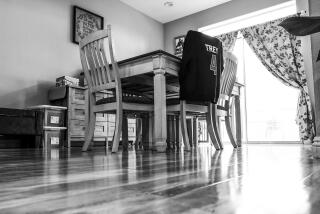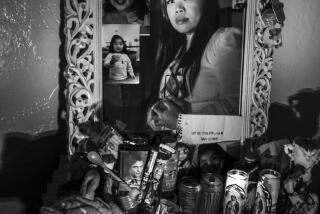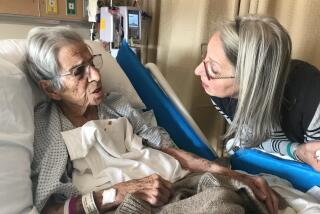Issue Familiar to Caregivers
- Share via
The Terri Schiavo saga resonated Monday in the hospices and nursing homes of California, where doctors and caregivers said they routinely confront the same painful and complicated end-of-life decisions that have placed the Florida woman at the center of a national drama.
Paul DenOuden said he frequently encounters families who struggle with wrenching decisions about when and if to end a loved one’s life.
Few know about these difficult issues more than DenOuden, the medical director of the Carl Bean House, a 25-bed AIDS treatment center in Los Angeles’ West Adams district.
“If someone is clearly terminal, it’s easier for families and patients to make the decision,” he said Monday as he made his rounds.
“The harder part is when the tube has already been put in for other reasons. It’s very, very difficult psychologically for families to see the fluids and the food in the tube stopped.”
Hospice caregivers and others said the Schiavo case underscored the importance of planning for the end of life.
“If we learn anything from this case, it’s that everyone, no matter how old they are, should make their loved ones aware of whether they want an artificial way of sustaining life,” said Lena Beker, the owner and administrator of the Los Angeles-based Roze Room Hospice, which serves about 100 patients in private homes and nursing homes.
Most of Beker’s patients are 65 or older, and most have signed so-called advance directives, legal documents that spell out their wishes.
Times staff writer Duke Helfand contributed to this report.
More to Read
Sign up for Essential California
The most important California stories and recommendations in your inbox every morning.
You may occasionally receive promotional content from the Los Angeles Times.











